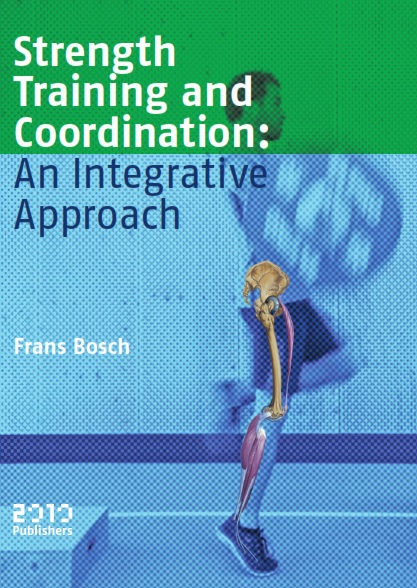Training theory has traditionally distinguished between strength, speed, agility, stamina and coordination – basic motor properties that have been seen as more or less separate factors. Frans Bosch’s book Strength Training and Coordination: An Integrative Approach claims that this distinction is questionable in both theory and practice. In particular, transfer of training cannot be understood if the five properties are treated as separate factors. This is a highly original and scientifically substantiated viewpoint that has never before been presented in a textbook.
This book does not approach strength training in terms of its mechanical manifestations; instead, the author presents a model based on what is known about the underlying – especially neurological – processes. Specificity between strength exercises and athletic movement is thus identified, and the term ‘overload’ acquires a new meaning. Dynamic systems theory is used to create a link between motor learning and strength training. In addition, theory is constantly translated into guidelines for practice. In this book, sport-specific strength training means coordination training under increased resistance.
This book is the translation of the fully revised second edition of the Dutch-language book Krachttraining en coördinatie, een integratieve benadering, which originally appeared in 2012. It will be of interest not only to students of sport science and physiotherapy, but also to sport and other physiotherapists, and to movement specialists and other coaches who want to do more than just strengthen the musculo-skeletal system. This book is about contextual strength training.
Frans Bosch is a lecturer in motor learning and training theory at the Fontys sports college in the Netherlands. He also works as a consultant and specialist coach for the Welsh and Japanese national rugby teams and the West Ham United Football Club. Together with Ronald Klomp he has previously written the book Running: Biomechanics and Exercise Physiology in Practice, which was published by Churchill Livingstone in 2004.
